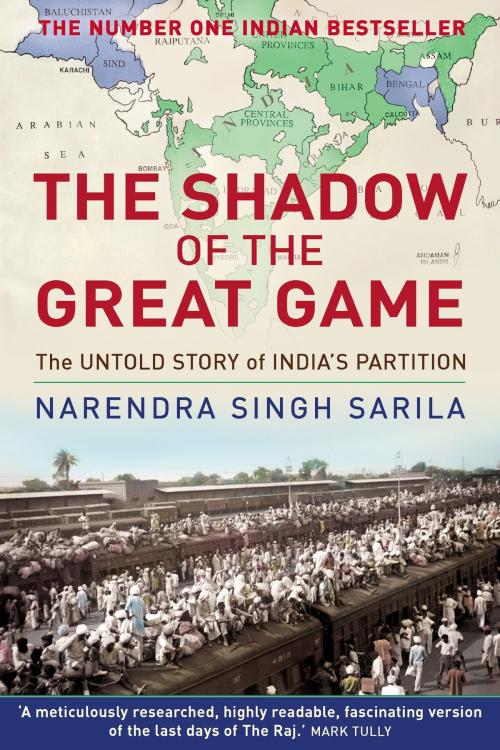| Author: | Narendra Singh Sarila | ISBN: | 9781472128225 |
| Publisher: | Little, Brown Book Group | Publication: | August 10, 2017 |
| Imprint: | Constable | Language: | English |
| Author: | Narendra Singh Sarila |
| ISBN: | 9781472128225 |
| Publisher: | Little, Brown Book Group |
| Publication: | August 10, 2017 |
| Imprint: | Constable |
| Language: | English |
The untold story of India's Partition.
The partition of India in 1947 was the only way to contain intractable religious differences as the subcontinent moved towards independence - or so the story goes. But this dramatic new history reveals previously overlooked links between British strategic interests - in the oil wells of the Middle East and maintaining access to its Indian Ocean territories - and partition. Narendra Singh Sarela reveals here how hte Great Gane against the Soviet Union cast a long shadow. The top-secret documentary evidence unearthed by the author sheds new light on several prominent figures, including Gandhi, Jinnah, Mountbatten, Churchill, Attlee, Wavell and Nerhu. This radical reassessment of one of the key events in British colonial history is important in itself, but its claim that many of the roots of Islamic terrorism sweeping the world today lie in the partition of India has much wider implications.
The untold story of India's Partition.
The partition of India in 1947 was the only way to contain intractable religious differences as the subcontinent moved towards independence - or so the story goes. But this dramatic new history reveals previously overlooked links between British strategic interests - in the oil wells of the Middle East and maintaining access to its Indian Ocean territories - and partition. Narendra Singh Sarela reveals here how hte Great Gane against the Soviet Union cast a long shadow. The top-secret documentary evidence unearthed by the author sheds new light on several prominent figures, including Gandhi, Jinnah, Mountbatten, Churchill, Attlee, Wavell and Nerhu. This radical reassessment of one of the key events in British colonial history is important in itself, but its claim that many of the roots of Islamic terrorism sweeping the world today lie in the partition of India has much wider implications.















